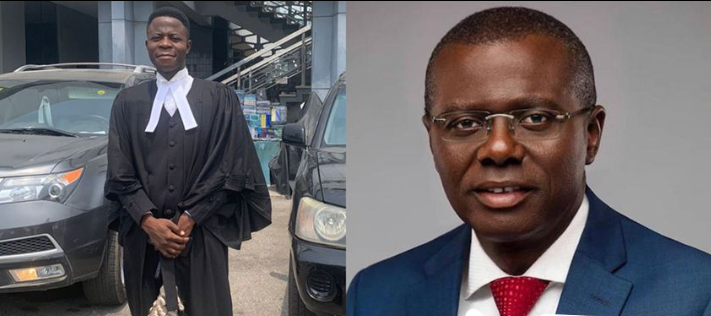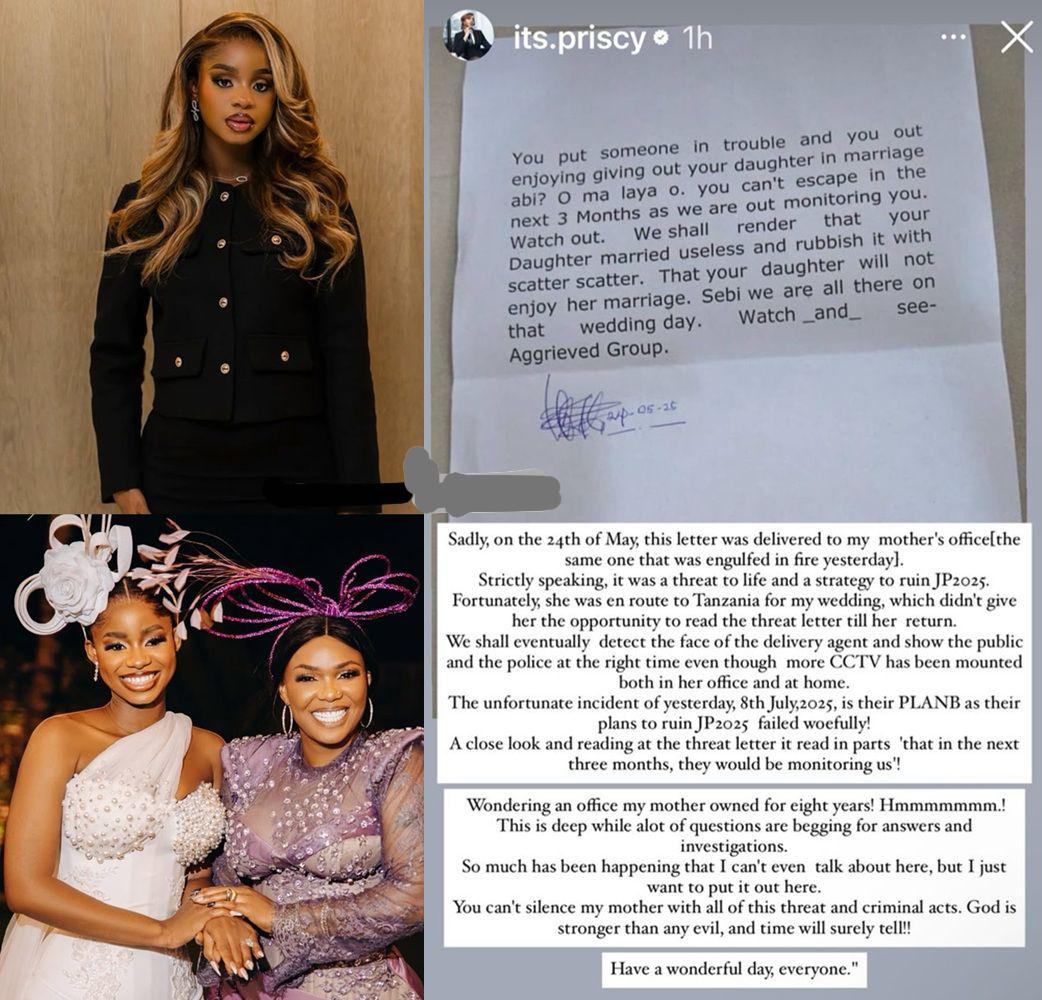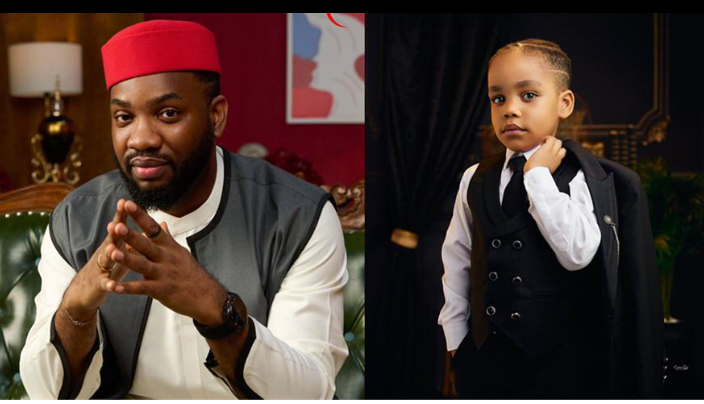
Lawyer Vows Legal Battle Against Governor Sanwo-Olu for Blocking Him on Twitter, Cites Violation of Constitutional Rights

In what may become a landmark case on digital rights and freedom of expression in Nigeria, Lagos-based human rights lawyer Festus Ogun has announced his intention to take Governor Babajide Sanwo-Olu to court for blocking him on the social media platform X, formerly known as Twitter. Ogun, a vocal critic of the Lagos State government, made the declaration via his personal account, alleging that the governor has unjustly barred him from accessing his official communications and public interactions on the platform for nearly three years.
“For about three years, Babajide Sanwo-Olu has blocked me on Twitter,” Ogun posted on Thursday. “August 2025, I will be approaching the court for legal remedies. As a Lagos resident, I am convinced that my blocking is an attack on my constitutional right to freedom of expression.”
Ogun’s planned lawsuit highlights growing concerns around the digital behavior of public office holders, particularly in the context of Nigeria’s democratic system and the right of citizens to participate in governance, scrutiny, and public discourse. His post has since stirred a whirlwind of conversation on social media, with many Nigerians questioning whether elected officials should be allowed to restrict access to their official accounts which are used to disseminate public information and government policies.
The announcement, made publicly and unapologetically, has sparked mixed reactions online. Some citizens are applauding Ogun for standing up against what they describe as “digital authoritarianism,” while others believe the lawsuit may be a stretch, considering that social media accounts are technically personal platforms. Yet, as many have pointed out, when those accounts are used for official communication, they carry the weight of public office, and should be subject to the same transparency and accessibility standards that govern public institutions.
While Governor Sanwo-Olu has yet to respond to Ogun’s statement, the implications of such a legal battle are far-reaching. If the court recognizes the governor’s blocking of a constituent as a constitutional violation, it could establish new legal boundaries around the use of social media by public office holders across Nigeria. It also raises the question: can a governor, or any public officer, choose who gets to hear them or challenge them in a democratic space?
Ogun argues that being blocked by the governor infringes upon his right to receive information and express opinions freely, as enshrined in Nigeria’s Constitution. “The Governor’s official account is not a private diary,” Ogun further stated in a follow-up message. “It’s a virtual public space. Blocking me amounts to denying me access to official information that concerns me as a citizen and resident of Lagos.”
In democratic societies around the world, this debate isn’t new. In 2019, a U.S. federal appeals court ruled that then-President Donald Trump violated the Constitution by blocking people from his Twitter account, stating that the account functioned as a public forum. Ogun’s upcoming case could potentially mirror similar legal logic, marking one of the first times such a digital rights issue is taken to court in Nigeria.
Experts in constitutional law and digital rights have weighed in, describing the situation as one that could pave the way for a clearer understanding of where personal space ends and public duty begins in the age of social media. “When a governor uses his account to make policy announcements, share updates on government programs, or address citizens, that account assumes a quasi-public status,” said Barrister Adeola Sanyaolu, a lecturer at the University of Lagos. “Blocking a citizen from that space could be interpreted as a denial of civic participation.”
The matter becomes even more complex considering Nigeria’s turbulent relationship with social media. The government had previously banned Twitter in June 2021 following a dispute with the platform over content moderation and political expression. The ban, which lasted seven months, was widely condemned by rights groups and drew global attention to Nigeria’s digital censorship tendencies.
Ogun’s lawsuit, should it proceed in August as he announced, would undoubtedly reignite the national conversation on freedom of speech and government accountability. It also reflects a broader global challenge: how should democracies adapt their constitutional values to the digital age, where a tweet can hold as much weight as a press conference?
For Ogun, this is more than a legal contest; it’s a civic duty. Known for his activism and legal advocacy, he has represented victims of police brutality and spoken out against government oppression on multiple fronts. His decision to take legal action against Sanwo-Olu could be a personal crusade, but it has quickly become a collective one as more Nigerians relate to the feeling of being silenced or ignored by those in power.
Supporters of Ogun argue that the matter speaks to a deeper issue—access to governance. “If the governor shares emergency updates or public service announcements on Twitter, and some residents are blocked from viewing them, how is that different from barring them from listening to a town hall broadcast?” tweeted one user.
The outcome of this case could lead to new legal standards around how elected officials interact with the public on digital platforms, especially in a country where over 30 million citizens use social media as their primary source of news and public engagement. It could also compel public servants to rethink their online behaviors, particularly on platforms that have become essential tools of governance and accountability.
While many await the court’s decision—assuming the suit is filed and accepted—some analysts caution that the case might not be straightforward. It could depend heavily on whether Sanwo-Olu’s Twitter account is considered personal or official, and whether blocking someone from it constitutes an actionable offense under Nigerian law.
Regardless of the verdict, Ogun’s bold step has already ignited vital questions: Where does personal discretion end and public responsibility begin in the digital sphere? Can leaders, in a democracy, pick and choose who listens to their voice?
In an era where political discourse is often shaped online, and where access to information is heavily mediated by digital platforms, this developing story could be more than just a legal contest—it may be a defining moment for Nigeria’s democratic evolution in the social media age. As August 2025 approaches, all eyes will be on the courtroom, where law, rights, and tweets may collide.


